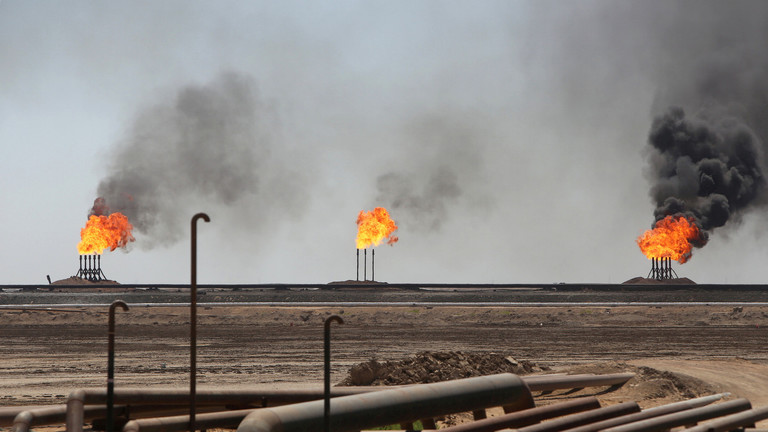Oil prices surge 3% on Middle East tensions and strong US jobs data

Shafaq News/ Oil prices edged up inAsian trade on Friday, heading for a weekly gain of more than 3%, as US jobsdata calmed demand concerns and fears of a widening Middle East conflictpersisted.
Brent crude futures rose 9 cents, or0.11%, to $79.25 a barrel by 0406 GMT. US West Texas Intermediate crude futureswere up 12 cents at $76.31 per barrel.
Both Brent and WTI were set to gainmore than 3% on a weekly basis.
Israeli forces stepped up airstrikesacross the Gaza Strip on Thursday, killing at least 40 people, Palestinianmedics said, in further battle with Hamas-led militants as Israel braced forpotential wider war in the region.
"Crude oil continued itsrecovery from its recent plunge as elevated geopolitical risks came intofocus," said ANZ analyst Daniel Hynes.
The killing last week of seniormembers of militant groups Hamas and Hezbollah had raised the possibility ofretaliatory strikes by Iran against Israel, stoking concerns over oil supplyfrom the world's largest producing region.
Iran-aligned Houthi militantscontinued attacks this week on international shipping near Yemen, in solidaritywith Palestinians in the war between Israel and Hamas.
On Thursday, the United KingdomMaritime Trade Operations (UKMTO) agency said it had received a report of anincident near the coast of Mokha, a port city in Yemen.
Lending further support to prices,Libya's National Oil Corp. declared force majeure at its Sharara oilfield fromWednesday, the company said in a statement, adding that it had graduallyreduced the field's output because of protests.
Also in the Middle East, the king ofSaudi Arabia, the world's largest oil exporter, decreed that the cabinet couldconvene in the absence of himself and the prime minister, his son Crown PrinceMohammed bin Salman, state media said on Thursday.
The 88-year-old King Salman wastreated for lung inflammation in May. Prince Mohammed, 38, has been the defacto ruler since 2017.
Sentiment in the United States wasbuoyed after data showed the number of Americans filing new applications forunemployment benefits fell more than expected last week, suggesting fears thatthe labor market was unraveling were overblown and easing recession concerns.
The dollar (.DXY) rose on the jobsdata. A stronger dollar usually tends to lower oil prices, however, as buyersusing other currencies have to pay more for their dollar-denominated crude.
In China, July consumer price indexfigures showed no sign of a pick-up in consumer demand, despiteconsumption-boosting incentives.
Prices rose last month at a rateslightly faster than expected, Friday's data showed, but that was largelybecause of weather disruptions that affected food supplies.
Markets in key oil trading hubSingapore were closed for a public holiday.
(Reuters)






